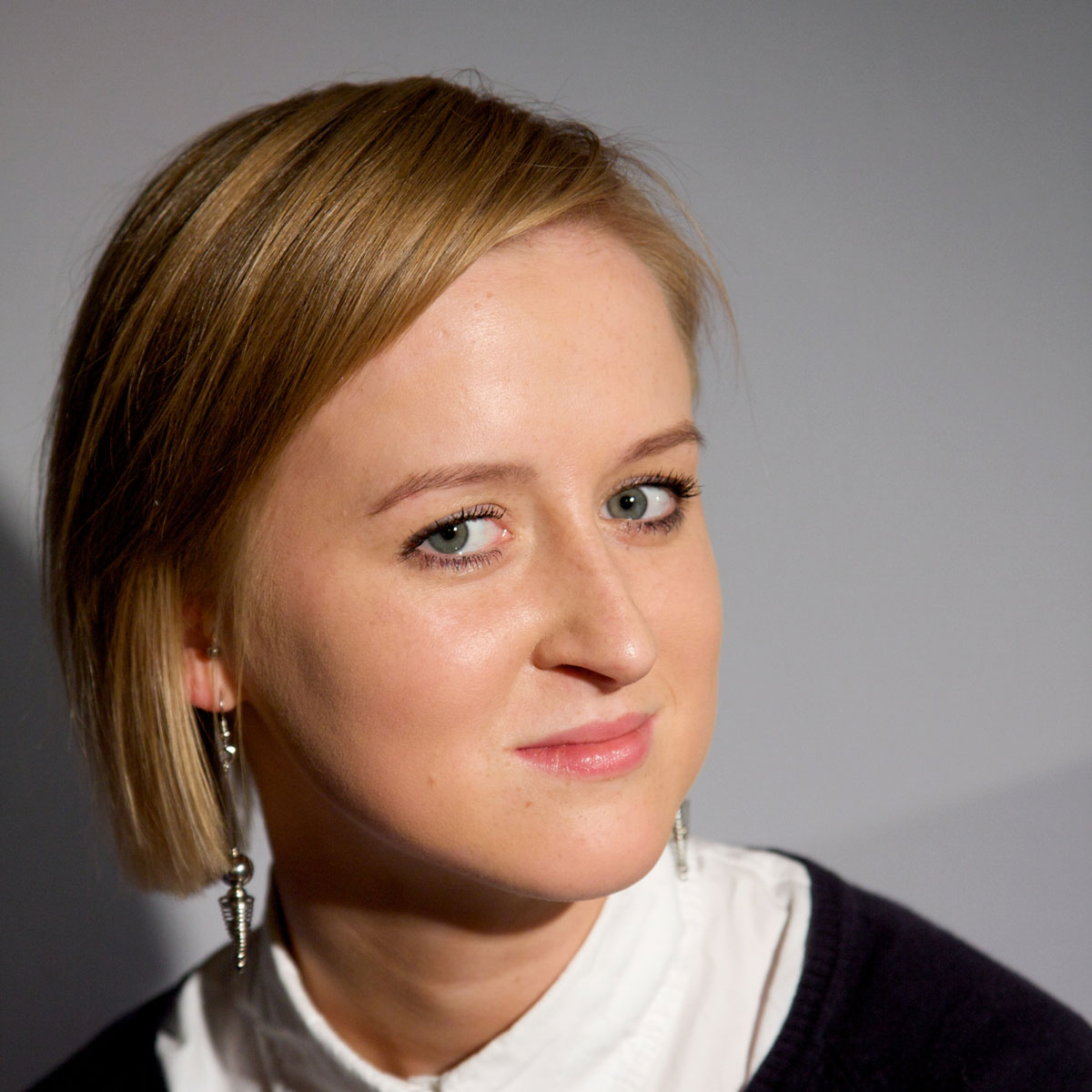Communications Project Coordinator, Lithuanian National Drama Theatre / Public Relations; Informology
Why did you choose to study Public Relations?
When I was studying Informology, I think there were PR lectures in the third year, and I found it an interesting subject, where you can write, use your creative potential to develop communication campaigns, contribute to change, shape opinion.
In addition, in my fourth year, when I had to choose an internship, I managed to win a competition for an assistant position in one of the TV stations, where I worked as an assistant to the head of PR, I became even more familiar with this activity, and I got a lot of chances to write, to contribute to the creation of campaigns. I wanted to learn more and I chose the Public Relations course for my Master's studies.
What was your year of study? Tell us your most vivid memories from your studies.
I remember that there were a lot of group assignments, we were already doing a lot of designing, hypothetical strategising, it was interesting. My course mates were from different fields, some of them already working in PR, so there were a lot of interesting conversations, although the company was very heterogeneous. The trip to the PR competition in Minsk was also very memorable. I still often remember this trip with my course mates when we meet up. We also have good memories of winning the prize in the social project category, and of having a lot of fun travel experiences and discoveries in Minsk. I also remember vividly some of my lecturers from my studies, their insights and examples that still come up in certain situations.
How has the knowledge you gained at Vilnius University's Faculty of Communication helped you in your work?
Education at university in general gives a person a broader understanding of the world, of the processes that take place, and forms critical thinking. Often we intuitively sense some things, even though we haven't studied them. I even wonder how those teaching patterns work. And professional knowledge is really useful. I have often said to colleagues when discussions arise, "But we were taught to do it this way". Isn't that a good argument? It is good to have knowledge that you can build on. Lectures on planning communication campaigns, crisis management, ethics, writing were really useful. I still sometimes turn to my study notes to check something.
What does your working day look like? What are the most important skills in your job?
Like many professionals in this field, my day may be radically different from yesterday. One day may be spent on the computer writing press releases, the next day is spent on interviews, meetings with actors or directors, press conferences, photo shoots, the next day is spent, say, interviewing people for a news clip on Gediminas Avenue, or collecting old sweaters for a campaign, or listening to audience complaints about cancelled performances. There is no shortage of variety.
But a typical day usually starts with reading emails and reviewing the ticketing system (we keep an eye on the sales of the premieres and the next performances and plan our actions accordingly), and then the work begins. A PR person in the field must be used to multitasking. For example, I am in charge of the theatre's PR campaigns, writing texts, managing the theatre's website, Facebook and Instagram accounts, drafting responses to journalists according to their needs, initiating topics, and also taking part in marketing issues, organising filming of clips and press conferences. So there's always work to do, and if there's a spare hour, it's up to you to think of what else you could do, what channel you could use or what campaign you could come up with.
However, it's very interesting to work in the theatre because there is a lot of freedom for creativity and you are surrounded by creative people who are ready for challenges and unconventional solutions. Of course, we also feel the tension before the premieres, but that is the creative process. The good thing is that we have a lot of infrastructure in the theatre for creative ideas (the theatre lighting technicians can set up the lights for the filming of a video clip, the grimmers can take the actors' clothes off, the sound technicians can set up the microphones for a press conference, etc.) This makes it much easier for the actors themselves to do the voice-overs for the commercials in the theatre if needed.
As far as skills are concerned, promptness is very important. Journalists don't like to wait, you have to give them the information quickly, but equally importantly, you have to give it to them in a good way (so that the message the organisation is trying to get across is understood correctly). It is important to have a cool head, to be able to work in stressful situations, to make decisions, to have negotiation skills, to be literate, to be courteous, to be aware of trends in society, to be creative and to have emotional intelligence.
What kind of people would you recommend a PR degree programme to?
Responsible people (decency is very important in this field, the perception that PR professionals are manipulators is changing - nowadays, good PR professionals are important partners for journalists, you just have to earn that trust), creative people, people with stamina, people who love to write, people who are not afraid of criticism. And of course a positive outlook on life, which is useful in relationships with journalists, colleagues and oneself.

